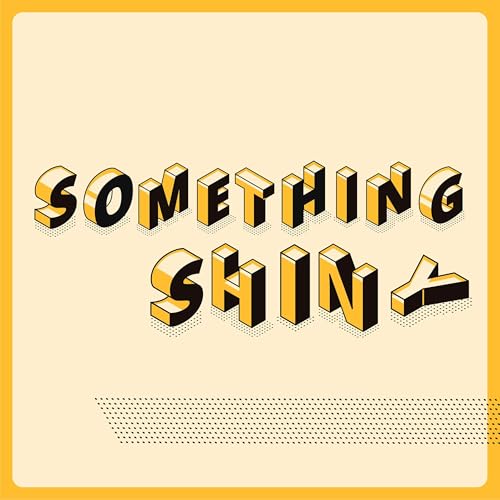How do you survive holiday travel with ADHD? What about traveling with children, particularly small children? And what happens when you find yourself rushing, leaving things until the last minute, and forgetting your charger once again? David and Isabelle swap stories and share specific tips to traveling and also discuss WHY ARE THERE SOCK NUBBINS AND TAGS. Seriously.-----There can be so much pressure to have a Hallmark, picture-postcard perfect holiday and it’s so important to revise those expectations and think about what you actually want to do, for example, maybe it’s “we go to the this house, tolerate everyone for 45 minutes, you grab the turkey, I grab the mashed potatoes, and we leave.” And what about the uncomfortable holiday clothes? Isabelle laughs and mentions a brilliant SNL fake ad for Macy’s that’s all about children’s clothing and how uncomfortable it is. David describes this might be where task meets emotionality (for definition, see below)—is the task of the holidays spending time with family? David remembers the holidays being hard, everyone fighting on the way there and then fine when they got home, and wearing uncomfortable clothes, and just wanting to leave and it being awful. Isabelle remembers coming home so late and it was freezing and trying to sleep in the back seat, freezing. David had the experience going to his partner’s holiday celebrations and—they don’t have ADHD—everyone got along, hung out, sang songs, played piano—and this is real? Friendsgiving is a thing, and you can make choices, what you do for holidays is a choice: like winter is a choice. Anytime you feel trapped or caught in something, changing the language to “I’m choosing to do blank because blank…” with what needs your meeting with it, changes it from you “have to go see Meemaw” You can take the shoulds, musts, and have-to and change it to choices. And maybe Meemaw doesn’t care what you wear, she just wants to see you. WHY ARE THERE TAGS IN CLOTHING? And NUBBINS ON SOCKS? We have evolved so many incredible things, we have AI, we have genome sequencing, and we have sock nubbins, and who invented pantyhose and shapewear. David likes shape wear because the underarmour stuff he wears is nice and tight. Isabelle describes that it’s more designed to smush you in and sometimes it’s great—this is maybe Isabelle’s trauma after being a 6 ft woman at 14 year old, so she was fitting into shape wear and pantyhose as a kid and hated it so much and it was so uncomfortable. David always got all these hand-me-down socks that were in a constant state of yawn—now David gets the really tight socks that stay up all day, “look at you sock, staying up all day!” And transitioning back to travel—and sometimes travel is really hard because we’re pushing ourselves harder than we should. Having the toolbox is just as important on the airplane or airport, or knowing how long you’re waiting with a toolbox. Whoever’s doing the traveling, your self care is the most important: you can’t control your kids being miserable, they will be, you have to put your oxygen mask, go at your pace, go at your tolerance. Kids will fall apart. You need to be there for them when they do. So what do you need to be there for them? Maybe it’s a treat, maybe it’s slowing down—take care of you. Pack the day before. And always include an extra day back at home before transitioning back. You can change the day back—the end is always going to be the end of the vacation, but you being able to have a different re-entry ritual into your day to day can be game changing. Isabelle shares some tips from her own front line experiences, such as when driving from Indianapolis from Nashville as part of moving, when she forgot the iPad…and everything else, and her kid was stuck in the way back for hours bored out of their mind. Needless to say, iPads are last steps, so it’s a plan B, but it forces them to have lots of plan A—and on this trip, she forgot all the plan B’s and A’s. And everyone is going to have a meltdown—Isabelle, as mom, will also have a breakdown. It doesn’t matter how prepared you are, travel will break you at some point. Travel with kids is courting brilliant memories of chaos, so she anticipates and plans on her having a breakdown. So she tells herself that “I’m a good mom who’s reached her limit.” You’re trained from babyhood to meet their needs all the time, but it’s a set up, the game is rigged, and part of the rigging is us thinking we’re never going to lose it ourselves. Maybe it’s the rule, not the exception. What about outsourcing, like checking your bags curbside, strapping your kid into the carseat on the plane (because they’re used to it and airplane seatbelts do nothing). Be kind to yourself. There’s also this idea that a vacation and a trip with kids are two separate things. The labor does not change, but increases, but the expectation for ...
Show more
Show less
 Jan 1 202528 mins
Jan 1 202528 mins 35 mins
35 mins Dec 11 202427 mins
Dec 11 202427 mins 29 mins
29 mins 36 mins
36 mins 25 mins
25 mins Nov 6 202433 mins
Nov 6 202433 mins Oct 23 202429 mins
Oct 23 202429 mins
